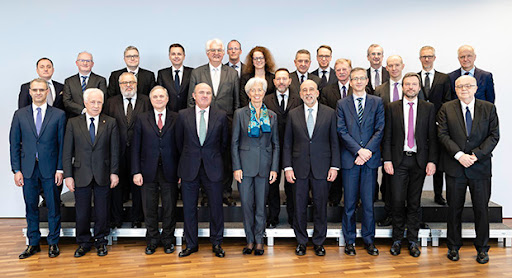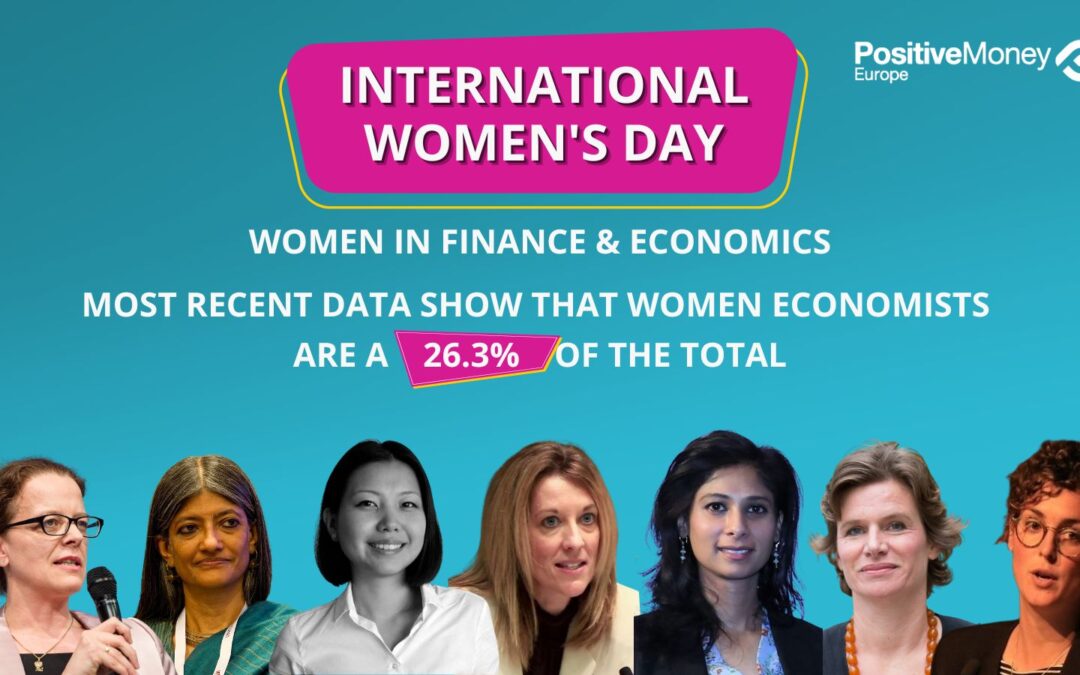Since 1911, the International Women’s Day on the 8th of March, has been a day dedicated to celebrating women’s achievements in the pursuit of their rights and gender equality. On this day, Positive Money Europe wants to highlight how female financial inclusion, access to positions of power for minority groups, and the contribution and visibility of female economists are extremely important factors in eradicating inequality.
International Women’s Day serves as a reminder of the struggles and achievements women have faced over the centuries with regard to their right to learn, vote, work, express themselves, and participate in policy making. Today should also be an occasion to reflect on how far our societies still have to go to fully achieve equality and inclusion of minority groups. Access to money and equal pay, as well as the representation of women in economics and in leadership positions are all battles we are still fighting for.
What is the situation today?
Despite money being fundamental to the freedom and independence of women and other minority groups, and the economy being such a crucial component in the functioning of our society, minorities are still massively under-represented in the academic debate on economics and finance, as well as in the institutions of economic power.
Recent data shows that female economists registered in the RePEc Author Service – a database linking economists with their research outputs – account for a mere 26.3%. Why is that? Certainly not because of a lack of brilliant female economists. The truth is that until this day, women continue to face barriers that hinder their career development in the field, for the simple reason that they are women. Among these barriers are the fact that papers authored by female economists take longer to peer-review, have a different level of recognition from peers and academic institutions, and receive a more hostile and patronising treatment compared to their male colleagues.
Although progress has been made in recent times, the advancement of women and people from minority backgrounds to positions of decision-making power in economics and finance is still very much an uphill battle.
In the world of central banks, for example, the vast majority of governors and top-level officials are white men. With the appointment of Christine Lagarde as president of the European Central Bank (ECB), and of Isabel Schabel as a member of its board, we can now count two women in leadership positions at the Central Bank (and this is a historic result!). Put visually, it looks something like this:

A picture of the Governing Council of the ECB – the Central Bank’s core decision-making body, consisting of the Board members and the 20 governors of the national central banks in the euro area.
Why representation and diversity matter
Female economic and financial inequality is an issue that has been affecting the lives of many generations of women, in many different ways: from having to pay a tax on tampons and in general higher prices for products mainly used by women, to having to deal with sexist treatment when entering business and economic careers.
The level of inequality in our society will continue to worsen if women and other minorities are excluded from making economic decisions that have gendered as well as ethnic effects. Likewise, we will never be able to move towards a fairer economic system if the work of economists and researchers from minority backgrounds continues to be hampered.
Economists such as Jayati Ghosh and Mariana Mazzucato are already contributing to shifting the economic thinking towards more progressive and heterodox visions.
Moreover, research shows that when women are included in decision-making processes, innovation and creativity increase, conflicts reduce, more perspectives are brought to the table, and points are put on the agenda that would otherwise be ignored by men.
This is, therefore, not just a “feminist” issue. It is about democracy and fairness, and even development. In a democratic society, the diversity of the population should be equally represented in institutions of power – when this happens, it not only benefits specific minority groups, but society as a whole.
We at Positive Money Europe are committed to empowering and platforming women’s and other minorities’ voices, bringing them to the forefront of the debate on money, the economy and finance.

